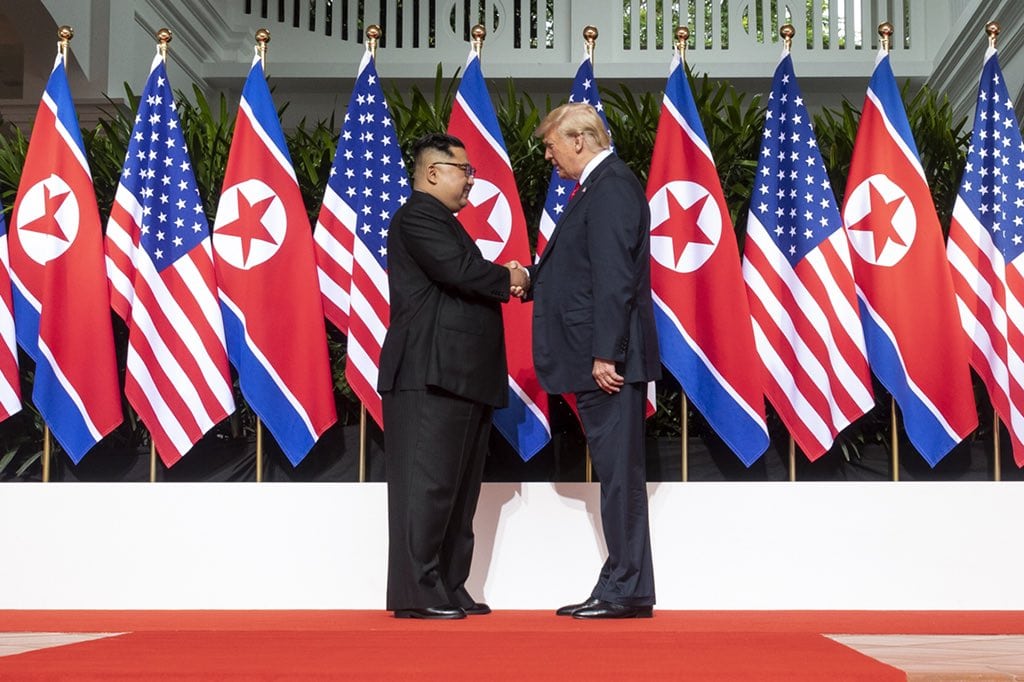 White House Photo
White House Photo
Denuclearization: One Word Two Meanings
As South Korean President Moon Jae in and Kim Jong un meet this week in the North Korean capital of Pyeongyang, the mood is celebratory and upbeat. This celebratory atmosphere is fueled by the pronouncement from South Korean officials that the North Koreans agreed to a timetable for denuclearization, agreeing to “denuclearize” by the end of Trump’s first term.
The optimism surrounding the summit obscures the harsh reality that the U.S. and North Korea have vastly different definitions of denuclearization.
The U.S. Definition of Denuclearization
Secretary Pompeo outlined the U.S. position on denuclearization during a press briefing before the 1st Trump-Kim summit, “The ultimate objective we seek from diplomacy with North Korea has not changed. The complete and verifiable and irreversible denuclearization of the Korean Peninsula is the only outcome that the United States will accept.” Under this type of denuclearization plan, known as CVID, North Korea would have to forfeit the entirety of its nuclear weapons stockpile and submit to inspections from international or U.S. monitors. Under CVID sanctions would remain until North Korea completely and verifiably eliminates its weapons of mass destruction programs.
The North Korean Definition of Denuclearization
For North Korea denuclearization does not mean unilateral disarmament. This was shown last July when a North Korean diplomat summarized its opposition on unilateral disarmament, “The US just came out with such unilateral and robber-like denuclearization demands as CVID declaration and verification that go against the spirit of the North-US summit meeting.” North Korea’s definition of denuclearization was outlined by a KNCA news release which paraphrased Kim as wanting to “completely remove the danger of armed conflict and horror of war from the Korean peninsula and turn it into the cradle of peace without nuclear weapons and free from nuclear threat.” Importantly, the phrase first mentions ‘completely removing the danger of armed conflict’ before denuclearization. This sets the bar very high as it would be near impossible to ever completely eliminate the threat of war. Additionally, the phrase “nuclear threat” does not specify eliminating only the North Korean nuclear threat, and is most likely alluding to eliminating the U.S. nuclear threat as well.
Given that the two sides have such vastly different definitions of denuclearization, it is unsurprising that negotiations following the Trump-Kim summit have ended in an impasse. Both sides unwillingness to admit that a difference in definition exists, is further exacerbating the problem. Pyeongyang and Washington should jointly define denuclearization, by conducting diplomacy at lower levels, before making any further pronouncements on denuclearization.





